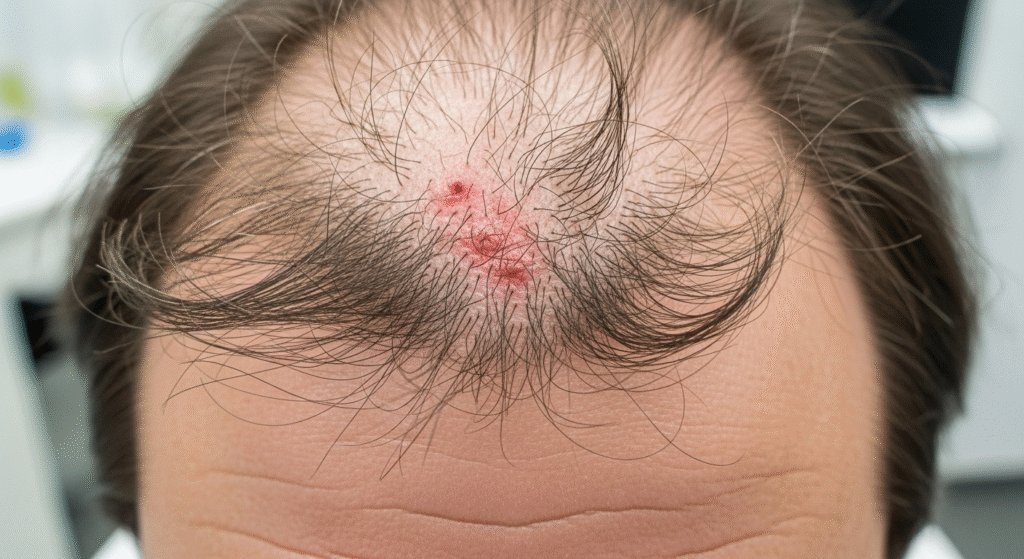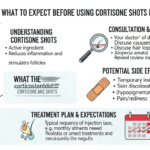If you’re worried about Can Meth Cause Hair Loss, you’re not alone. Many people are unaware that methamphetamine, a powerful stimulant, can contribute to hair thinning and loss. This article will explain how meth affects your hair health, the signs to watch for, and how recovery is possible. By reading this post, you’ll gain valuable …
If you’re worried about Can Meth Cause Hair Loss, you’re not alone. Many people are unaware that methamphetamine, a powerful stimulant, can contribute to hair thinning and loss. This article will explain how meth affects your hair health, the signs to watch for, and how recovery is possible.
By reading this post, you’ll gain valuable insights into the connection between meth use and hair loss, and learn expert-backed strategies for regrowing healthy hair.

What Is Meth and How Does It Affect Your Body?
Overview of Methamphetamine Use
Methamphetamine, commonly known as meth, is a highly addictive stimulant that affects the central nervous system. It comes in various forms, such as powder, crystals (ice), and pills. Meth increases the release of dopamine, leading to intense feelings of euphoria and energy.
Unfortunately, its effects on the body are far from positive. Chronic meth use can cause severe physical and mental health issues, including damage to the cardiovascular system, liver, kidneys, and, most notably, the hair follicles.
Short-Term and Long-Term Effects of Meth on Health
- Short-term effects: Increased energy, decreased appetite, and intense focus.
- Long-term effects: Severe dental problems (meth mouth), weight loss, skin issues, and hair loss. Over time, meth can wreak havoc on various organs, leading to long-term damage.
How Does Meth Contribute to Hair Loss?

The Biological Mechanisms Behind Hair Loss
Methamphetamine affects the body in multiple ways that contribute to hair loss. First, it significantly restricts blood flow and nutrient delivery to hair follicles. Hair growth depends on a steady supply of vitamins, minerals, and blood flow to the scalp. Meth interferes with these processes, leading to weak hair strands that eventually fall out.
Additionally, meth disrupts the natural hair growth cycle, which consists of three phases:
- Anagen (growth phase)
- Catagen (transition phase)
- Telogen (resting phase)
Meth can cause hair to prematurely enter the telogen phase, resulting in shedding.
Stress and Its Role in Hair Loss
Meth use leads to heightened stress levels, both mentally and physically. Chronic stress has been linked to hair loss, particularly a condition known as telogen effluvium, where hair falls out after periods of significant stress or trauma.
Meth’s Impact on Hormones
Another contributing factor to hair loss from meth use is its effect on hormones. Meth alters hormone levels, particularly those related to stress (such as cortisol). Elevated cortisol levels have been shown to damage hair follicles and lead to hair thinning.
Can Meth Cause Hair Loss: Signs and Symptoms
Early Indicators of Hair Thinning
In the early stages of meth-induced hair loss, you may notice:
- Increased shedding when brushing or washing hair
- Thin or patchy areas on the scalp
- Dry, brittle hair that breaks easily
Gradual or Sudden Hair Loss
Hair loss from meth use can either be gradual or rapid. Gradual hair thinning might be more common in chronic users, while sudden loss can occur if the body experiences extreme trauma or stress from meth abuse.
Emotional and Psychological Impact
Hair loss, particularly when visible, can significantly impact an individual’s self-esteem and mental well-being. Many people may experience feelings of anxiety or depression related to their hair loss, especially when meth use has led to physical changes in appearance.
Can Meth-Induced Hair Loss Be Reversed?
Timeline for Hair Regrowth After Stopping Meth Use
The good news is that stopping meth use can help reverse some of the damage. However, regrowth depends on the severity of the damage and how long meth has been used. Most people see improvement in hair thickness and regrowth within 3 to 6 months after quitting meth, though it may take up to a year for full recovery.
Recovery Tips and Strategies for Reversing Hair Loss
- Nutrition: Eat a balanced diet rich in vitamins and minerals that support hair growth, such as biotin, vitamin E, and omega-3 fatty acids.
- Hair Care: Use gentle, sulfate-free shampoos and conditioners to avoid further hair breakage.
- Stress Management: Practice relaxation techniques like meditation and yoga to reduce stress and improve overall health.
- Consult a Dermatologist: A professional can assess the extent of your hair loss and recommend treatments like topical minoxidil or hair transplants.
Role of Medical Treatments and Hair Restoration
For severe hair loss, medical treatments like hair transplants or prescription medication may be necessary. These options should only be considered under the guidance of a healthcare provider.
Expert Opinions on Meth Use and Hair Loss
Case Studies and Testimonials
Many people who have experienced meth-induced hair loss report significant recovery after discontinuing the drug. One individual shared, “It took about 8 months for my hair to start regrowing after quitting meth. I also made changes to my diet and hair care routine, which helped speed up the process.”
Scientific Evidence and Studies on Meth and Hair Loss
A study published in Dermatology Clinics in 2019 linked methamphetamine use to hair loss, particularly in long-term users. Researchers found that meth’s effect on circulation and hormones directly contributes to follicle damage and shedding.
How to Protect Your Hair While Recovering from Meth Addiction

Healthy Diets for Hair Health
Ensure you’re eating nutrient-dense foods such as:
- Leafy greens (spinach, kale)
- Nuts and seeds (rich in biotin and zinc)
- Fatty fish (salmon, mackerel for omega-3s) These foods provide essential nutrients that promote hair regrowth.
Stress Management Techniques
Managing stress is crucial for hair recovery. Consider activities like:
- Meditation
- Breathing exercises
- Gentle exercise (walking, yoga)
When to Consult a Specialist
If your hair loss is severe or you notice no improvement after several months, consult a dermatologist or a hair restoration specialist. They can provide treatments such as PRP (Platelet-Rich Plasma) therapy or guide you through the hair transplant process.
FAQs
Can meth cause permanent hair loss?
While meth-induced hair loss can be reversed if caught early, prolonged use may lead to permanent follicle damage. However, stopping meth use can help prevent further loss and encourage regrowth.
How long does it take to recover from meth-induced hair loss?
Recovery can take anywhere from 3 to 12 months depending on how long meth was used and the extent of the hair loss.
Are there other drugs that can cause hair loss like meth?
Yes, drugs like cocaine, alcohol, and steroids can also contribute to hair loss by affecting hormone levels, circulation, and overall health.
Ready To Take the Next Step
If you’re struggling with hair loss after meth use, don’t wait to seek professional help. Book a consultation with Dr. Uzma Irfan, an ISHRS-certified surgeon in Islamabad today to get personalized advice on regrowing your hair and improving your overall health.






